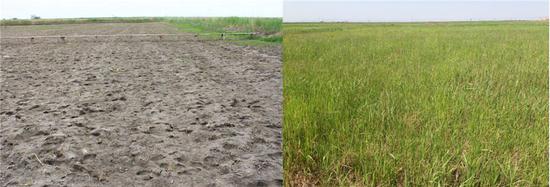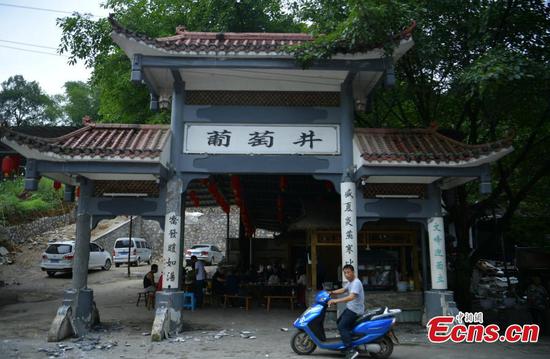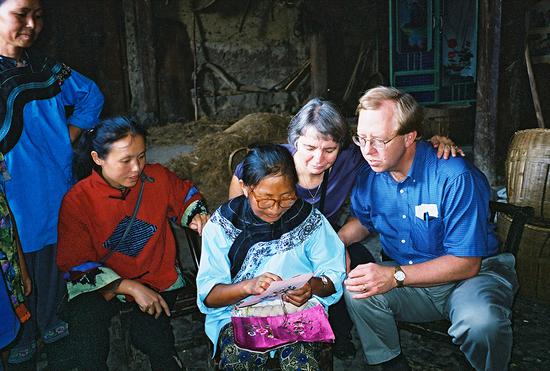
Wang Yufeng, director of Makit county's natural resources bureau, checks the growth of cistanche tubulosa last month. (LI LEI/CHINA DAILY)
Retreat
However, in 2012, the sand began retreating after the local government launched a project to convert about 66,000 hectares of desert on the outskirts of Makit into woods comprised of saxaul and poplar, drought-resistant trees whose roots bind the sand and prevent invasive sandstorms.
To that end, 50-meter-wide belts of towering poplars were planted densely in a bid to reduce wind erosion. At the same time, saxaul trees were planted in neat rows between the poplar belts to improve the condition of the soil.
Wang Yufeng, director of the county's natural resources bureau, who has headed the program for the past seven years, said the project, which has provided job opportunities for hundreds of farmers, is about one-third complete. "That's more than 190 million trees," he said.
The 42-year-old said farmers have been hired to preserve the environmental shield by watering the saplings at night, using a drip irrigation network to reduce evaporation, and placing wire fencing around the young trees to protect them from animals.
The work can bring as much as 60,000 yuan ($8,684) a year to poor households, easily lifting a family's average income above the region's annual poverty line of about 3,000 yuan per person.


















































